Our National Board of Governors
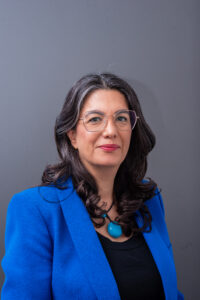 |
Dr. Shabnam Inanloo Dailoo, Chair
Dr. Shabnam Inanloo Dailoo is Associate Professor and Director of the Heritage Resources Management Program, and Associate Dean, Strategic Initiatives, within the Faculty of Humanities and Social Sciences at Athabasca University. She has two decades of national and international experience in heritage conservation theory and practice. She holds a PhD in Environmental Design from the University of Calgary and completed her post-doctoral research with the Canada Research Chair on Built Heritage at the Université de Montréal. She previously worked as Heritage and Community Engagement Advisor in the private sector and promoted the application of cultural landscape approach in heritage management. Her current research examines the existing policies, guidelines, and procedures in conservation and management of World Heritage sites; heritage education in Canada; and heritage documentation and conservation and climate impact.
She has served on various provincial, national, and international boards and committees including Alberta Historical Resources Foundation, ICOM Canada, ICOMOS Canada, Ministerial Advisory Committee for the update of Canada’s Tentative List for World Heritage Sites, and the Commonwealth Association of Museums. She coordinated and hosted the 2022 ICCROM International Summer School on Teaching and Communication Skills in Conservation and Science in Alberta. She is Athabasca University’s focal point for Climate Heritage Network and is a member of ICOMOS International Training Committee (CIF) and ICOM International Committee for the Training of Personnel (ICTOP). Shabnam also serves as the co-chair of the Canadian Chapter of the Association of Critical Heritage Studies and the Trust’s National Roundtable on Heritage Education.
|
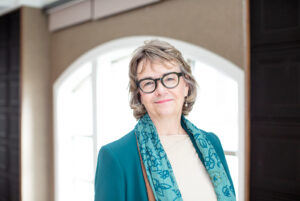 |
Margo Sheppard, Vice-Chair
Margo has a degree in Environmental Studies from the University of Waterloo, ON and spent 35 years as an environmental planner and activist in government and civil society, frequently mixing the two. As Cabinet Liaison for the Ministry of Environment in Ontario, Margo provided advice on aboriginal affairs, environmental land use, policy development, Niagara Escarpment and legal instruments for conserving ecosystems and heritage. For fourteen years she was Executive Director of the Nature Trust of New Brunswick, a province-wide charitable land trust. Margo was a founding member of the Canadian Land Trust Alliance, a cross-country network of land conservation practitioners, and a founding director of two watershed associations. Margo currently serves as a Councillor for the City of Fredericton, NB. She has a lifelong love of heritage places and buildings, and in her spare time was twice a Director of the Fredericton Heritage Trust and volunteer member of the City’s Preservation Review Board (ongoing). Margo has been active in efforts to save important historic buildings in Fredericton for to her these represent an architecture of quality, beauty, human-scale and long-term cultural value. She brings to the National Trust a keen desire to delve into and demonstrate the climate (carbon) benefits of heritage preservation, in addition to seeking enhanced tools and tax breaks for individuals wishing to safeguard historic sites. Margo lives with her husband Larry on the banks of the Wolastoq (St. John) River in Fredericton, New Brunswick. |
 |
John Thomson, Vice-Chair
John’s career in Canada’s heritage and culture sector spans the business, government and not-for-profit sectors. In business, he was an executive at the Expo 86 Corporation, the BC Lottery Corporation, president of the Jim Pattison Publishing Group and Over Canada Productions, and CEO and Publisher at Canadian Geographic Enterprises. In these roles, he was publisher/producer of several award-winning magazines and documentary films and many books. Joining Parks Canada in 2009 as Special Advisor to the CEO, he subsequently had executive roles focusing on history and heritage, winning a CEO Award of Excellence for his part in the imaginative restoration and revitalization of Banff’s Cave and Basin National Historic Site. John was the instigator and leader of the establishment of Canada Historic Places Day and of the National Geographic Guide to the National Historic Sites of Canada. John’s volunteer activities have included serving as treasurer of the Maritime Museum of British Columbia, president of the International Regional Magazine Association, vice-president of the Victoria Civic Heritage Trust, chair of Magazines Canada, and vice-president of Canada’s Coalition for the Diversity of Cultural Expression. John is a recipient of the Queen Elizabeth II Golden Jubilee Medal and is a current member of the IUCN World Commission on Protected Areas. He and his wife Jennette now live in Victoria, where both are involved with local heritage concerns. |
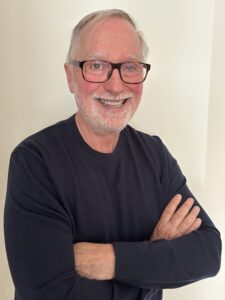
|
Jacques Archambault
Jacques has 40 years’ work experience in the NPO sector (Quebec and Ontario), including 20 in the cultural and natural heritage sector in Quebec for organizations owning heritage sites and buildings. Many of these properties are recognized at municipal, provincial and even federal levels – one of them being designated a National Historic Site of Canada. Over the course of his career, Jacques also worked for more than 20 years in program and service development, as well as fundraising. In 2024, after 15 years, Jacques stepped down as General Manager with The Canadian Heritage of Quebec (CHQ), an English-language organization that owns dozens of heritage sites and buildings in Quebec and has been involved in the heritage sector since 1956. In this position, he was directly involved in their conservation, financing and opening to the public, while contributing to the recognition and enhancement of the intangible heritage linked to the know-how of the craftsmen who work there. Jacques is well aware of the challenges facing organizations and owners in conserving heritage sites and ensuring their long-term survival. He participated in the creation of the Table de concertation des organismes nationaux en patrimoine bâti du Québec. Still driven by a passion for heritage, Jacques wishes to continue his involvement in its development, promotion and influence. He is currently a member of the Board of Directors of CHQ and the Amis et propriétaires des maisons anciennes du Québec (APMAQ). He has also completed various post-graduate courses relevant to the heritage sector, including a master’s degree in project management and a master’s degree in conservation of the built environment. |
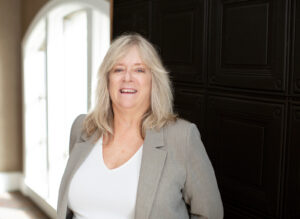 |
Ingrid Cazakoff, Past Chair
Ingrid Cazakoff Ingrid Cazakoff has served as the CEO for Heritage Saskatchewan since 2010, a non-profit organization established to promote heritage throughout the province. Ingrid has been an active participant in the cultural community of Saskatchewan for over three decades. Throughout this time she has demonstrated her commitment to community development through collaborative partnerships which continues to inform her leadership style at Heritage Saskatchewan. Developing relationships with individuals and organizations that share her passion for community; promoting the multiple connections between Living Heritage and quality of life issues, Ingrid leads a team of dedicated individuals who are pursuing new approaches; thinking about heritage as a dynamic aspect of daily life, linking the past to the present and creating a valuable legacy for future generations. |
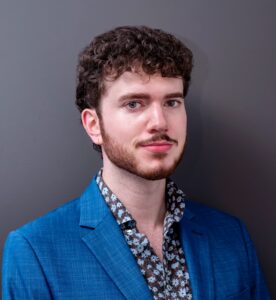 |
Frank Finley
Frank Finley is a writer and government relations specialist focused on heritage, with a particular interest in lost architecture and the political future of the sector. He serves on the boards of the Lougheed House Museum and the Chinook Country Historical Society, and is the lead researcher for Lost Canada, a digital project highlighting forgotten architecture from across the country. Frank is a former member of the National Trust’s Federal Issues Working Group, where he contributed to the development of political strategy. He has previously held positions in government with both the Ministry of Culture and Tourism and the Office of the Premier. Outside of his professional work, he pursues interests in meteorology and composition for strings. His debut book is forthcoming next year. |
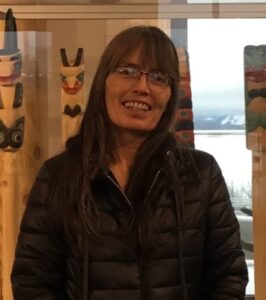 |
Colleen James or Ghoóch Tlâ (“Wolf Mother” in Tlingit”)
Colleen James or Ghoóch Tlâ (“Wolf Mother” in Tlingit”) is a Carcross Tagish First Nation (C/TFN) community leader, knowledge holder and research advisor. She is a proud Tagish-Tlingit of the Daklaweidi Clan (Killer Whale). Colleen is a mother, a grandmother and a great-grandmother to her community. James received a Lifetime Achievement Award from the Assembly of First Nations Yukon Regional Leadership Ceremony and an honorary Bachelor of Science from Yukon University for her role as a knowledge keeper, ceremonial leader, cultural ambassador, language protector and teacher. Colleen has published several peer reviewed articles and reports that showcase the Tagish and Tlingit peoples heritage and of C/TFN’s world views relating to water, land and life. Colleen has been working closely with collaborators, scientists, elders and others from the C/TFN to support water governance research and the development of a C/TFN Water Strategy and Action Plan. Colleen is a guardian of culture and continually shares the stories in the spirit of healing and reconciliation. We are part of the land a part of the water and we must come together today for our children tomorrow. |
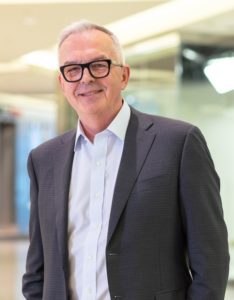 |
Grant Jameson, Secretary
Grant is an independent corporate director, board advisor and retired lawyer. Grant practiced corporate and commercial law in Ottawa until his retirement as a Senior Partner from the global law firm Norton Rose Fulbright where he was Ottawa Managing Partner and a member of the firm’s Management Committee. Following his retirement, Grant was appointed Fairness Commissioner of Ontario for a two-year term from 2017 to 2019. Grant provides corporate governance consulting services through his consultancy, Beattie House Associates. Grant has over 40 years of integrated professional leadership experience in business, community engagement, fundraising and education through the practice of law, law firm management, business, and his dedication to worthy causes that benefit the arts, human rights, health care and corporate governance. He has received a number of awards for his leadership and contribution. For many years prior to his retirement from the practice of law, Grant was legal counsel to the National Trust for Canada (formerly the Heritage Canada Foundation) providing legal advice to Executive Directors and boards of governors of the organization. Grant and his partner Joe Friday live in Ottawa in a designated heritage property built in 1862. Grant enjoys travel, collecting contemporary art and driving and working on his vintage Citroën 2CV. |
 |
Vivian Manasc
Vivian is a founding partner of Reimagine Architects and excels at providing senior management oversight, strategic thinking, community and consulting team engagement, and quality control. In a career that spans nearly five decades, she has led many innovative and challenging projects. Reimagine has been at the forefront of innovative, sustainable design largely due to Vivian’s pioneering efforts. She played a key role in the establishment of the Alberta Sustainable Buildings Symposium and the Canada Green Building Council, bringing the LEED® rating system to Canada and spearheading the first LEED® Gold project north of 60. She was the recipient of the 2023 Emerald Award for Legacy, the 2023 ASTech (Alberta Science, Technology, and Leadership) Award for Sustainability, the 2021 Business Leaders in Edmonton Award, and the 2021 Canada Green Building Council Lifetime Achievement Award. Vivian is also a member of the Alberta Order of Excellence and a Past President and Fellow of the Royal Architectural Institute of Canada. Her vision and dedication to environmentally conscious design practices is an enduring legacy. |
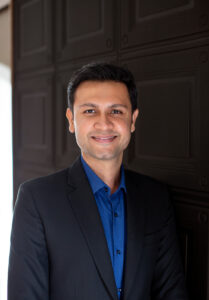 |
Harsh Padhya, Treasurer
Harsh has been working in the field of Planning for over 9 years, with experience in policy research, cultural heritage planning, environment assessments, and public engagement. He has knowledge, skills, and enthusiasm for conserving and celebrating our cultural and natural heritage resources as part of creating complete communities. While working with the City of Brampton, he has had the opportunity to communicate and collaborate with various departments and agencies. He also has experience working with international agencies like the World Bank, UNESCO and UNDP. Currently, he is working on commencing Brampton’s first Archaeological Management Plan. His international experience in India includes positions as a Senior Project Manager and a Project Officer in the fields of Planning and Public Policy giving him valuable experience in creating, managing and maintaining technical information, interpreting data, and stakeholder consultation. Harsh is also an existing CAHP intern member with Canadian Association of Heritage Planners network. |
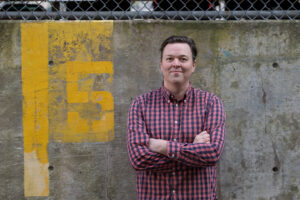 |
Luke Quinton
Luke is a writer, an audio producer and host, based in St. John’s, Newfoundland. Since 2022, he has served as the President of the Newfoundland and Labrador Historic Trust, advocating for the province’s heritage buildings and vernacular architecture. Prior to that he served on the board of Eastern Edge artist-run centre. Luke spent over a decade living in and around Austin, Texas. He was host and lead producer of the 7-part series Come By Chance, for CBC and Novel. He has written about art and culture for the “Globe and Mail,” CBC, Eater, Dwell, Architectural Digest, Riddle Fence, and others. His documentaries have appeared on CBC, 99 Percent Invisible, Snap Judgement, and the BBC World Service. |
